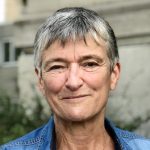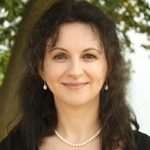
Assessing Linguistic Competence: Why and How
Dr. Lydia White
James McGill Professor of Linguistics Emeritus
Abstract: A distinction between competence and performance (or, more recently, representation and processing) has been adopted, implicitly or explicitly, in many different domains of language acquisition, particularly in research coming from the generative linguistic perspective. In this talk, I will consider the significance of the concept of linguistic competence, particularly in the additional language context, and how one can disentangle competence from performance issues. Acquisition of Binding Principles A and B will be used to illustrate some of these issues, including effects of universal principles, the role of the L1, and processing on underlying representations. Different offline and online methodologies that are used to assess linguistic competence will be also discussed.

The Bilingual Development of Syrian Refugee Children over 3 years Post-resettlement in Canada
Dr. Johanne Paradis
Department of Linguistics, University of Alberta
Abstract: First-generation refugee children have characteristics that could make their language development unique from other child bilinguals. Refugee children face many adversity factors prior to resettlement, such as interrupted education, frequent transitions, exposure to violence, separation from family, extended stays in refugee camps, and poverty/deprivation. Mental health and wellbeing difficulties often persist after resettlement, and refugee children display higher levels of such difficulties than children born in the host country. Post-migration, low socio-economic status and absence of age-appropriate education levels could also impact refugee children’s language development. In contrast to adversity factors, refugee children arrive in the host country with relatively strong heritage language abilities compared to second-generation heritage bilinguals. In 2015, the Canadian government launched an unprecedented program to resettle Syrian families who are UNHCR convention refugees. A longitudinal, multisite project documenting the bilingual and biliteracy development of Syrian refugee children was launched 2016, and this talk is based on findings from this project. Research will be presented that focusses on individual differences and between-language differences over time in the Arabic heritage-L1 and English majority-L2 development of Syrian refugee children, from their second to their fifth year of residency in Canada. Sources of individual differences include cognitive, age, language input, socioemotional well-being and adversity factors. Language tasks measured vocabulary, morphosyntax, narrative and listening comprehension; particular emphasis will be placed on children’s performance on a sentence repetition task in Arabic and English that includes complex syntax. Broadly speaking, findings indicate that what factors modulate rates of development can change over time and differentially influence the L1 and the L2. Both theoretical and applied implications of this research will be discussed.

The Power of Language: How the Codes We Use to Think, Speak, and Live Transform Our Minds
Dr. Viorica Marian
Professor of Communication Sciences and Disorders, Northwestern University
Abstract: The majority of the world population is bilingual or multilingual. In this talk, I will argue that accommodating multiple communicative codes is the prototypical state of the human brain, and will do so by introducing a new book that considers the power of language from the unique vantage point of bilingualism and multilingualism. I will present eye-tracking, mouse-tracking, EEG, and fMRI evidence that the continuous co-activation and interaction of multiple languages shapes the human linguistic, cognitive, and neural function. Being bilingual or multilingual results in profound changes not only to how we use language, but also how we perceive the world, what we remember, how we learn, our creativity, decision making, and identity at both the individual and society levels. I will conclude with a call for placing the study of language-mind interaction and multilingualism among the core areas of scientific investigation in the next decades if we are to gain an accurate understanding of humanity’s potential.

On the Nature and Limits of Code-switching
Dr. Barbara E. Bullock
Professor in French Linguistics, University of Texas, Austin
Abstract: Linguistic analyses of code-switching have traditionally focused on small data sets. These foundational studies have taught us a lot about the structure and function of code-switching but there are still basic questions about the nature and limits of code-switching that remain unanswered. For instance, we frequently find the expression “rampant code-switching” used to characterize some language samples. But what exactly does that mean? And what would “normal” code-switching look like? In this talk, we demonstrate a data-driven approach that allows us to model and visualize multilingual corpora so that they can be consistently analyzed to permit reliable comparisons between them. Our approach provides a method by which we can quantitatively test various linguist proposals about code-switching constraints and typologies. It also provides a potential model for future researchers to determine the constants of code-switching (if these exist), and to be able to identify notable deviations from them.

